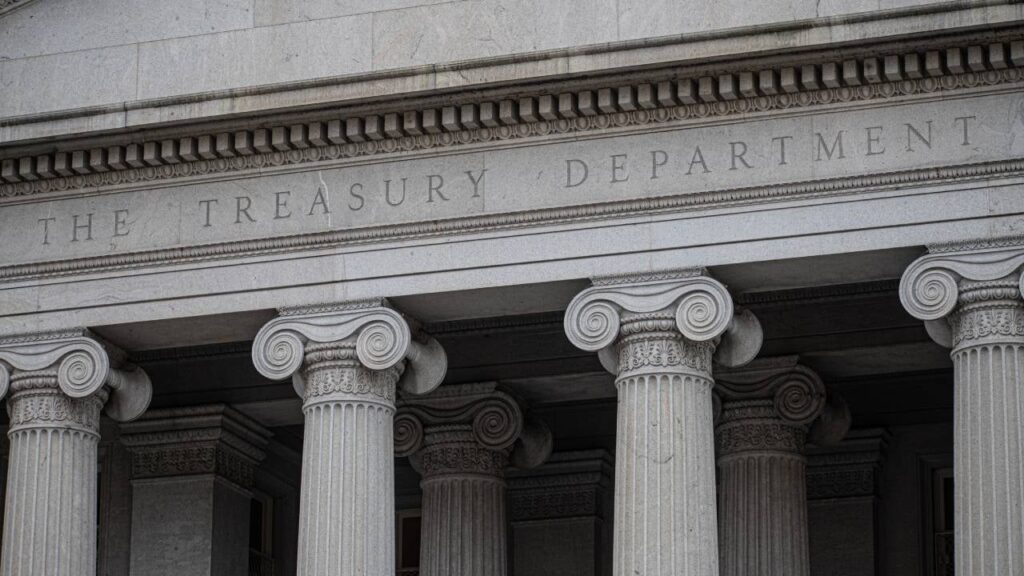The terms Treasury note, Treasury bond and Treasury bill may seem similar, but each has a distinct difference based on their maturity length. These Treasury securities represent the U.S. government’s commitment to repay a loan to the security holder, with the timing of principal repayment being the distinguishing factor.
Let’s delve into the world of Treasury bonds, notes, and bills, exploring their similarities and differences.
Understanding Treasury Bills
Treasury bills, also known as T-bills, are a type of Treasury security issued by the U.S. Department of the Treasury to finance government operations. They typically have maturities of four, eight, 13, 17, 26, and 52 weeks, and are only issued electronically.
Exploring Treasury Notes
Treasury notes, or T-notes, are another form of Treasury security used for government funding, with maturities ranging from two to 10 years.
Insight into Treasury Bonds
Treasury bonds, also known as T-bonds, are a significant type of Treasury security issued for government funding, with maturities of 20 or 30 years.
Treasury Bonds vs. Notes vs. Bills: Key Differences
Let’s compare Treasurys across three crucial dimensions.
Maturity
The primary distinction among Treasurys lies in their maturity periods:
- T-bills have maturities of one year or less.
- T-notes have maturities ranging from two to 10 years.
- T-bonds have maturities of 20 or 30 years.
Interest
Interest accrual and payment vary slightly among these Treasury securities.
T-notes and T-bonds pay interest semi-annually, following the standard bond practice.
In contrast, T-bills are sold at a discount to their face value, with the owner receiving the full face value upon maturity, representing the interest earned.
Generally, longer-term Treasurys offer higher interest rates compared to shorter-term ones, reflecting factors like inflation and interest rate uncertainty. However, under certain conditions like yield curve inversions, short-term Treasury rates may surpass long-term rates.
Taxes
Treasury securities, including bonds, notes, and bills, are subject to federal income taxes, including ordinary income taxes and applicable capital gains taxes.
However, these Treasury securities are exempt from state and local taxes.
Acquiring Treasury Securities
Investors can purchase Treasurys directly from the U.S. Treasury, brokers, and banks.
One can buy Treasurys commission-free from the U.S. government at TreasuryDirect.gov, eliminating fees associated with intermediaries. Setting up an account on the site allows you to purchase various savings bonds, such as Series EE and Series I bonds.
Several top online brokers, like Charles Schwab and E-Trade, offer commission-free Treasury trading.
Alternative Treasury Investment Methods
Investing in Treasurys through exchange-traded funds (ETFs) offers another avenue, providing exposure to short-, medium-, and long-term Treasurys.
For short-term Treasury exposure, consider ETFs like iShares Short Treasury Bond ETF (SHV) or Vanguard Short-Term Treasury ETF (VGSH). The former holds Treasurys maturing in a year or less, while the latter has an average maturity of one to three years.
Investors seeking long-term Treasury exposure can explore ETFs like iShares 20+ Year Treasury Bond ETF (TLT), containing bonds with maturities exceeding 20 years.
While ETFs levy a small expense ratio, they typically do not charge commissions for trading.
Is Investing in Treasurys Right for You?
Deciding on Treasury investments depends on your financial goals. Treasurys offer several advantages:
- Low credit risk: The U.S. government’s creditworthiness ensures timely interest payments and principal repayment.
- High liquidity: The extensive Treasury market facilitates easy buying and selling of securities.
- Competitive interest rates: Treasury rates often rival those of high-yield savings accounts, appealing for short-term cash placement.
- Tax-exempt income: State and local tax exemptions make Treasury payouts more attractive.
Consider these benefits against potential drawbacks, such as lower returns compared to corporate bonds or stock market indices. Fixed-rate bonds may depreciate as interest rates rise, resulting in capital losses upon sale.
Final Thoughts
The crucial disparity between Treasury bills, notes, and bonds lies in their issuance maturity. Additionally, the tax-exempt status of these securities makes Treasurys a compelling option for investors in high-tax regions.

